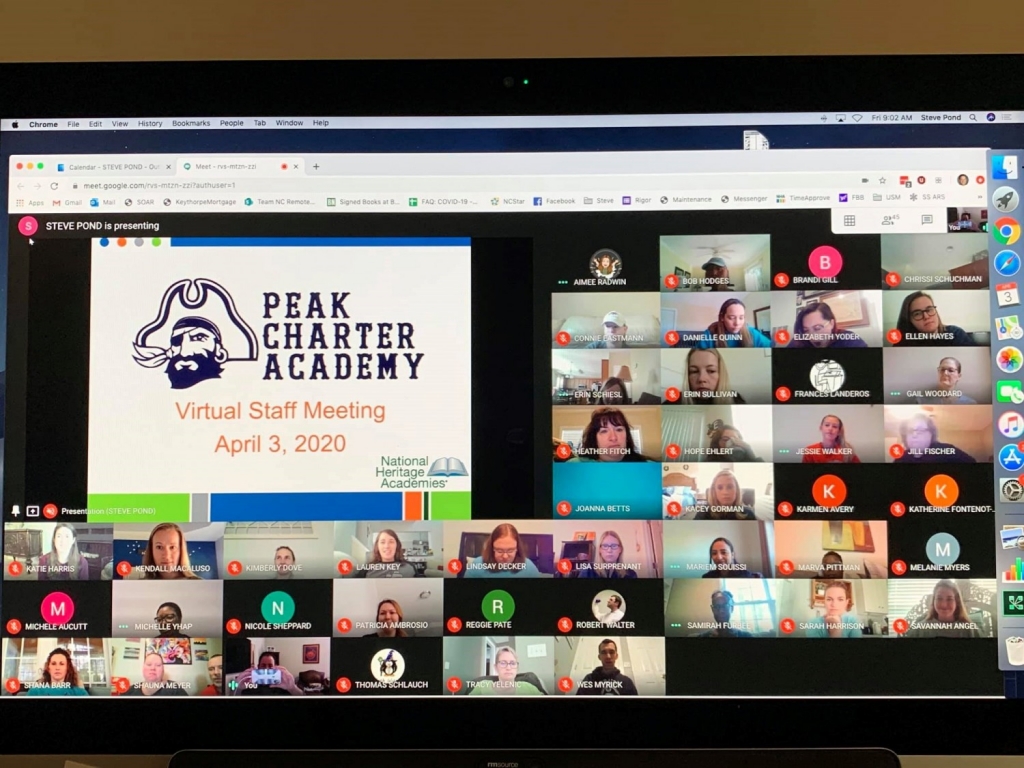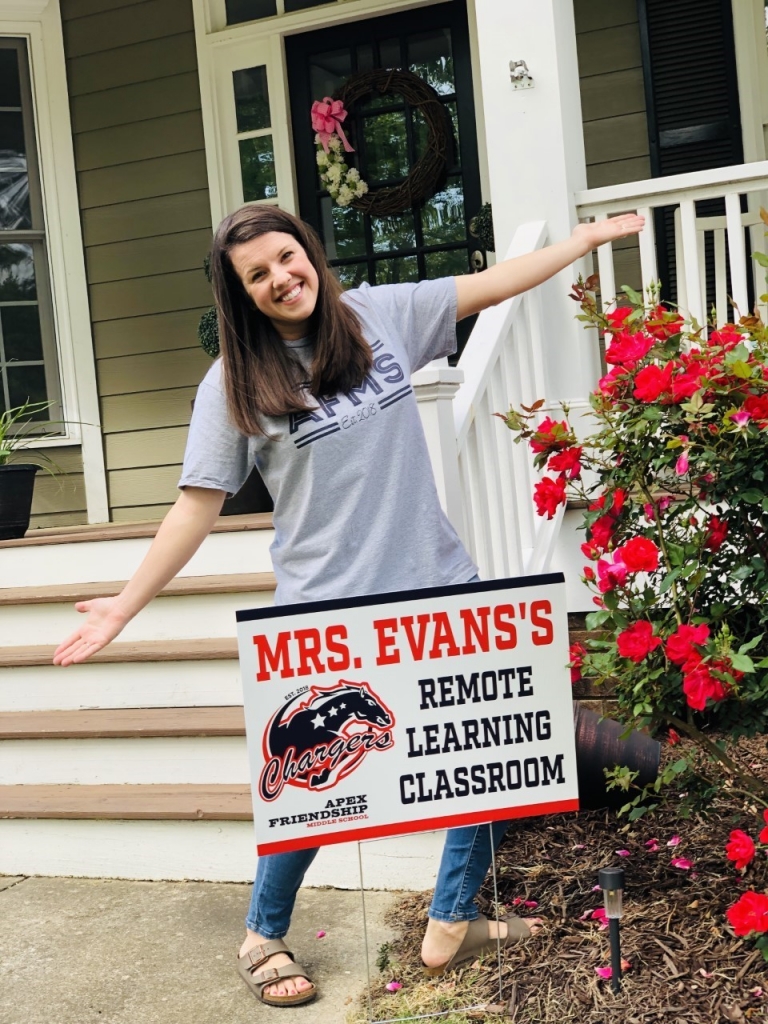Without face-to-face interaction with their students, teachers of Western Wake are learning to provide remote learning while maintaining relationships. It’s all about finding new, creative ways to keep students engaged.
As class now takes place at home, parents also having to adapt. Peak Academy parent Hannah Carter, of Fuquay-Varina, has two children, and she has some advice for facilitating online learning.
- Show yourself grace: “This is a lot for the kids to go through, it’s all totally new. It’s okay for things to not go your way the first time,” Carter said.
- Reach out to teachers, but know that you may not get an immediate response: When she noticed her kindergartner was finishing his homework rapidly, Carter asked his teachers if he could have more challenging activities. Conversely, her second-grader needed more time and she was given the support she needed.
- Give breaks: Carter works on two or three assignments at a time with her children, then gives them a 30-minute break before finishing the rest.
- Get them outside: “Being inside on the computer is a lot for them versus when they’re at school and they move often during the day,” Carter said.
- Keep it social: “They miss their friends and teachers terribly,” Carter said. She highlights the importance of video chatting with their friends and checking in virtually with teachers.
Jill Fischer of Durham is a fifth-grade science teacher at Peak Charter Academy in Apex. She brings science to the homes of students by recording experiments that students can watch or follow along at home. In addition to videos from the Weather Channel to reinforce weather topics, Fischer recorded herself making a cloud in a cup and filmed experiments demonstrating Newton’s Laws of motion. Although Fischer has found ways to make online learning interactive, she still misses the classroom experience.
“I miss the look on their faces when they get it, that aha moment,” said Fischer. “I tend to bring a lot of humor to the classroom. They may not think it’s so funny — but I do — I miss their moans and groans when I say something corny.”
At Peak, students were able to check out a Chromebook in order to have access to remote learning. For Principal Steve Pond, maintaining academic connections and the emotional ones were paramount to the shift to remote learning. Peak takes a differentiated learning approach to academics, providing students with assignments according to their individual needs.
Fischer is able to preserve the differentiated approach thanks to the platform STEMscopes which allows her to give different assignments to individual students. This ensures that students who need additional support are given the help they need as well as challenging those who can take on more demanding work.

A virtual Peak Charter Academy staff meeting.
Apex Friendship Middle School also opted for pre-recorded lectures in an effort to give all students equal access to online learning. The recorded lectures prevent students from missing out on instructional time if they are not able to attend class at the same hour every day while at home.
Lindsey Evans of Holly Springs teaches eighth-grade social studies at Friendship and saw her students grow with online learning.
“Several students have really blossomed as a result of this. Maybe for some students the traditional face-to-face learning isn’t their thing,” said Evans. “It has been so cool and incredible to see those students just take off and grow.”

Lindsey Evans smiles in front of her remote learning classroom.
What she misses most of all are the everyday interactions with her students.
“Teachers want to be able to see their eyes sparkle when they finally get something, or for them to come up and embrace us in a hug when they’ve had a really bad day and they just need somebody,” Evans said.






I just sat through a presentation by a computer scientist at Ga. Tech that convinced me that online learning can be VERY effective. They discussed the implementation of MOOC courses using a technique developed by Vocareum. I recommend everyone involved in education become aware of this new capability.